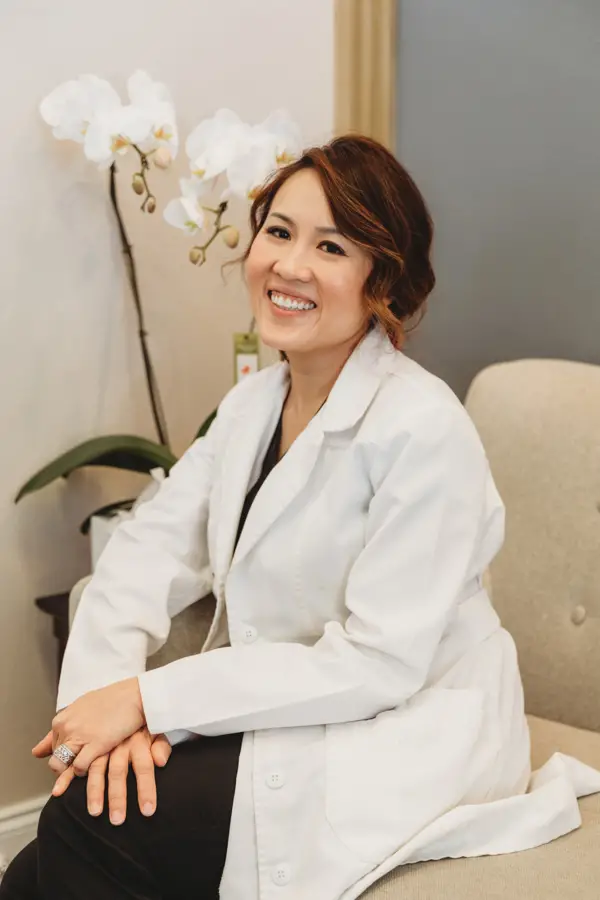Dental-Exam
Dental exams are one of the most important preventive care services that you can receive. Dental exams help detect and prevent problems that could lead to tooth decay, gum disease, jawbone loss, and other oral health issues. The dentist will perform a thorough exam during your scheduled appointment to ensure that your dental health is in good standing.
Dental Exams
Dental exams are a vital aspect of your oral health and should be performed regularly, ideally twice per year. During a dental exam, your dentist will check several parts of your mouth, including your teeth, gums, and tongue. They will also check for signs of periodontal disease, identify cavities and other tooth decay, observe the alignment of your teeth and gums, and check for oral cancer or other systemic issues that could be affecting your oral health.
What Is Included in a Dental Exam?
During a regular dental exam, the dentist will perform several different types of exams to ensure that you are maintaining good oral health.
The dentist will check for cavities using an intraoral camera to look for signs of decay. They may take digital X-rays to examine your teeth more closely and detect other signs of problems such as gum recession, bone loss, and tooth fractures. The dentist may also use an electronic sensor to measure the depth of your gums and assess the bone's health and thickness.
Periodontal Exam
Your dentist will also perform a periodontal exam during your regular dental exam to check for gum disease. They will probe and palpate the gums to feel for any pockets or areas where bacteria have built up. This is known as probing. If they detect any areas of inflammation or pockets between your gums and teeth, they will take a small sample of gum tissue to examine under a microscope for signs of inflammation or infection.
The dentist may also probe underneath your tooth roots to feel for bone loss beneath them. Bone loss is a telltale sign of periodontal disease, so this exam is used to screen for early signs of tooth loss due to gum disease.
Checking Other Oral Health Issues
During a regular dental exam, the dentist will check for other signs of oral health issues that could be affecting your overall health or your ability to properly maintain good oral hygiene habits. They will listen for abnormal speech patterns or observe any abnormal growths on the inside of the cheeks or tongue. They may also order additional tests such as X-rays or blood tests if they suspect certain systemic conditions like heart disease or diabetes are affecting your oral health.
I need A Regular Dental Exam
Getting regular dental exams is essential for maintaining good oral health and preventing potential dental problems. Here's how you can ensure you get regular checkups:
Schedule Routine Appointments
Dentists typically recommend having a dental exam every six months. Schedule these appointments in advance to ensure you stay on track with your oral health routine. Many dental offices will send reminders via text, email, or phone to help you remember your upcoming visits.
Choose a Trusted Dentist
Find a reliable dentist in your area who meets your needs. You can seek recommendations from friends, family, or online reviews to choose a dental practice you feel comfortable with. Establishing a relationship with a trusted dentist encourages consistent care.
Use Dental Insurance
If you have dental insurance, make sure to utilize your benefits. Most insurance plans cover routine dental exams, making it easier to stick to a regular schedule. Be sure to know what’s covered under your plan and when you’re eligible for exams and cleanings.
Stay on Top of Your Oral Health
Regular dental exams are an important part of preventive care. Even if you aren’t experiencing any discomfort or visible issues, exams help catch early signs of decay, gum disease, or other oral health problems. Staying proactive with these exams can prevent more serious conditions down the line.
Ask for Flexible Scheduling
Many dental offices offer flexible hours, including evenings and weekends, to accommodate busy schedules. If finding time for regular exams is a challenge, look for a dentist who can provide appointments outside of typical business hours.
Communicate with Your Dentist
Open communication with your dentist is key. Share any concerns or changes in your oral health during exams. This helps your dentist monitor your dental needs more effectively and tailor the care to your specific situation.
By prioritizing and scheduling regular dental exams, you can ensure that your teeth and gums remain healthy, and you can avoid more complicated dental procedures in the future.
FAQ
1. How often should I get a dental exam?
It's generally recommended to have a dental exam every six months. Regular checkups help catch potential issues like cavities, gum disease, and oral health problems early. However, your dentist may suggest more frequent visits depending on your oral health.
2. What happens during a dental exam?
A dental exam usually involves:
- A thorough cleaning.
- Anevaluation of your teeth and gums.
- Adiscussion about your oral hygiene habits.
X-rays may be taken to identify any underlying issues not visible during the visual exam. Your dentist will check for cavities, plaque buildup, gum disease, and other concerns.
3. Are dental exams covered by insurance?
Most dental insurance plans cover routine dental exams once or twice a year. However, it's important to check your specific plan to confirm coverage details, including any copayments or limits on the number of visits covered annually.
4. How long does a dental exam take?
A typical dental exam lasts between 30 to 60 minutes, depending on the condition of your oral health and whether any additional procedures, like X-rays or treatments, are needed during your visit.
5. What should I do to prepare for a dental exam?
Before your appointment, brush and floss your teeth as you normally would. Be prepared to discuss any dental issues you've been experiencing, such as sensitivity or pain. Bring any relevant medical records or insurance information if it's your first visit to a new dentist.
















